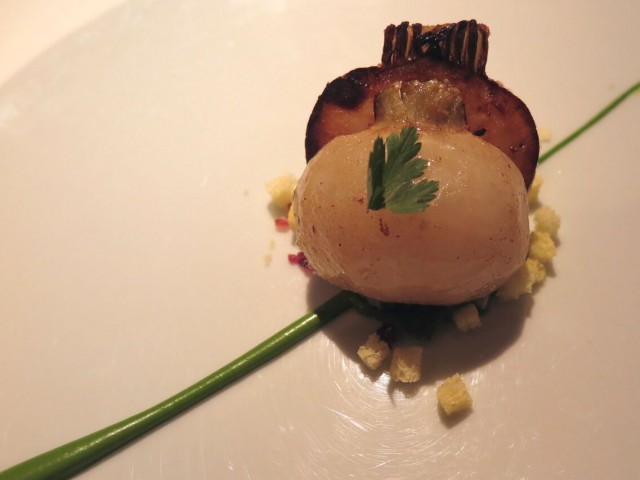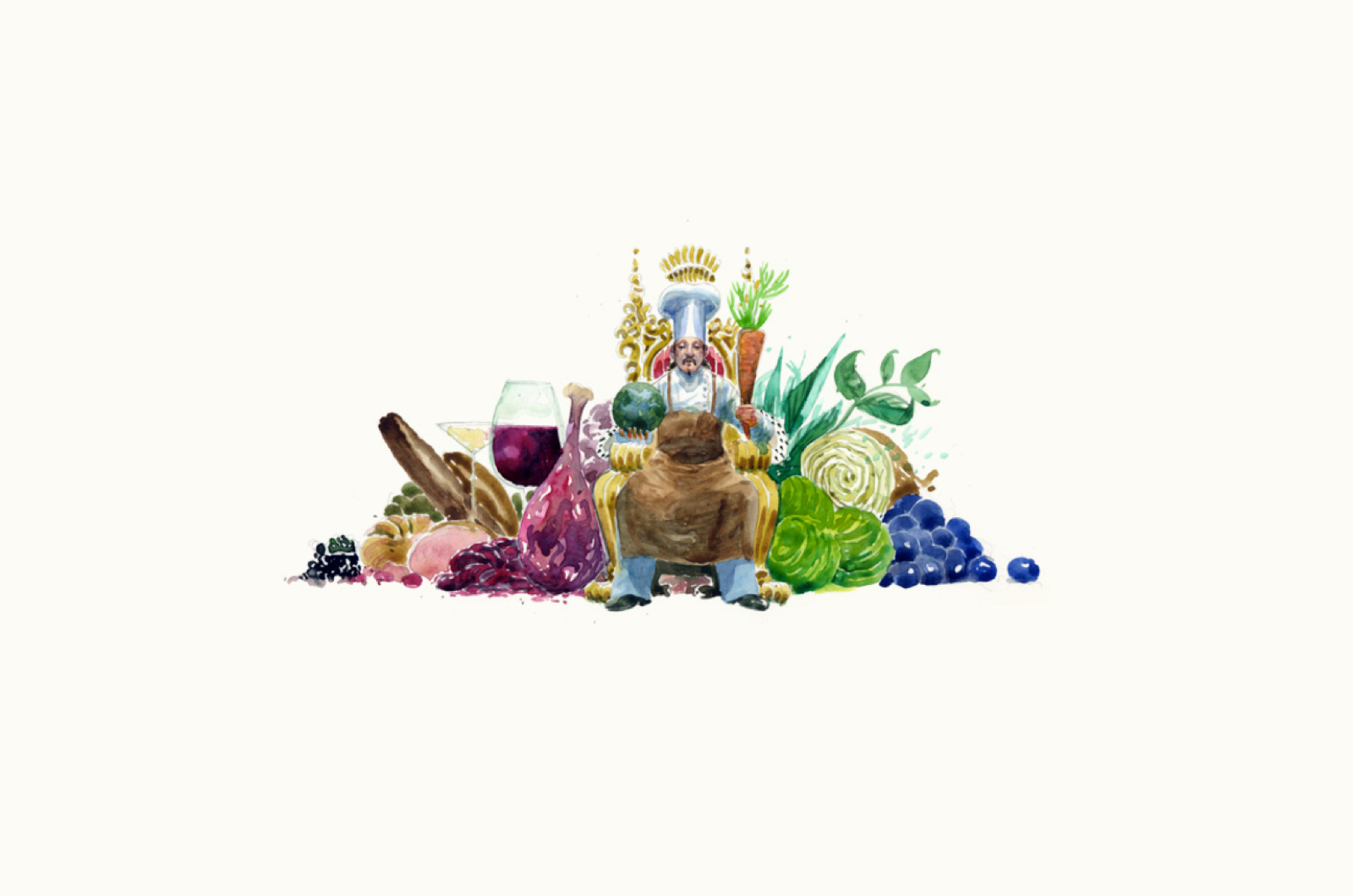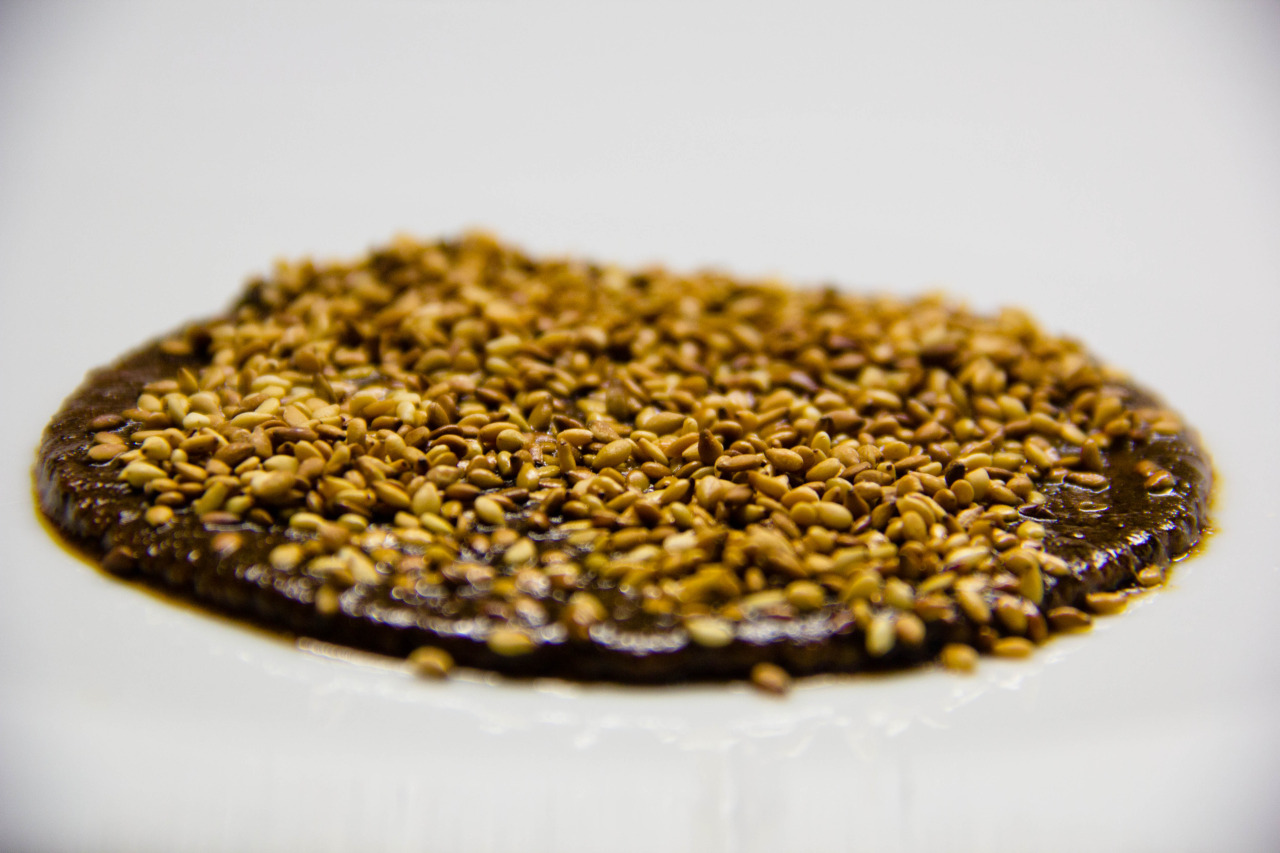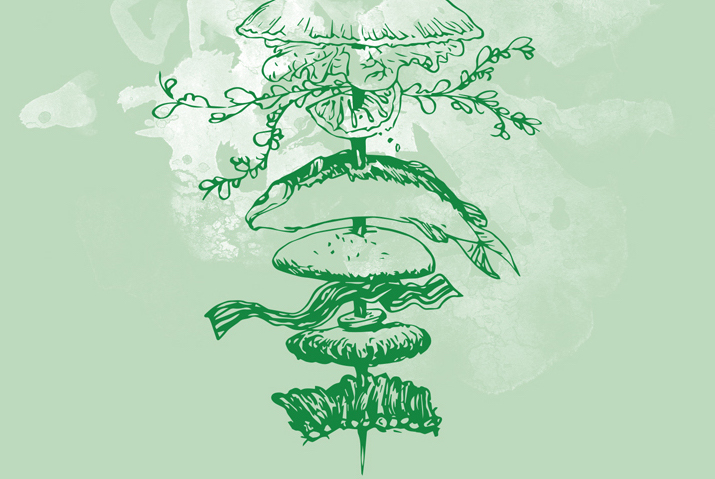Namae Shinobu, One of the Chefs Leading Japan’s New Wave
Ever since chef Shinobu Namae opened his restaurant L’Effervescence in Tokyo in 2010, his delicate, vibrant cooking has been billed as “contemporary French.” But there’s much more to it than that.
In Namae’s dishes, which have earned the restaurant two Michelin stars and twelfth on Asia’s 50 Best Restaurants list (as well as No.85 on the World’s 50 Best, which was released yesterday), you can find many examples of the techniques the chef developed while cooking in Europe, specifically under Michel Bras: foie gras over root vegetable puree, roast duck in its jus, perfect brunoise whenever it’s called for, and a flurry of delicate mignardises.
But there is also his signature dish, a perennial offering of kabu (Japanese turnip) slow-cooked until nearly translucent, as the Japanese prefer, and then finished with brown butter as the French do. There is also a crisp pastry pocket of boar, jujube, and pumpkin, delivered in a shiny paper box, an ode to apple pie from McDonald’s, perhaps the closest thing there is to global cuisine.
This flies in the face of many chefs in Japan, who still insist on certain measures of good cooking: Mastery is in creating the time-tested dishes of your respective cuisine (Japanese, Chinese, French, or Italian) with breathtaking perfection, and then doing it again and again. Kombu is for Japanese food; butter and cream is for Western. Menus should change with the seasons but otherwise not too often. Don’t experiment too much. Don’t be too weird.
In embracing freeform exploration and deliciousness over convention, Namae’s cooking heralds a new wave in Japan.
Recently, Namae talked to us about finding a unique voice as a chef, especially in the face of so many cultural dogmas.
Step out and agitate.
“I was studying [politics at Keio University] really hard, too hard, so much that I began to hate it. I told my father that I didn’t want to graduate and just become part of the system, working for a big enterprise like he did. I wanted to create things, not calculate things. I said something dramatic like, “I want to live!” It was a huge argument, and it ended with me basically running away. We didn’t talk for eight years. Children in Japan don’t do that.
I was on my own, so I started working in an Italian restaurant, because they paid and fed me. I don’t like to quit, so I still managed to graduate—classes and studying during the day, pasta and spaghetti from night until morning. It was a difficult time, but I was learning how to make something real. That was a time that has shaped everything I do. It taught me that sometimes you need to step out and agitate.”
Learn what rules you want to break.
“At first, I didn’t actually like French cuisine. French restaurants in Japan were very tense, very nervous places. I often left feeling cheated, because I couldn’t remember what I had just eaten. The food was complicated, focused on just showing off. I decided I would never cook like that.”
Learn how to think, not just cook.
“I learned essential cooking skills at Acqua Pazza, cooking for Yoshimi Hidaka. He was a pioneer in Japan with using organic vegetables and fish rather than meat in his Italian cuisine.
Then I read a book by Michel Bras, which was all about these very beautiful plates of whole ingredients. I had thought French cuisine was about manipulating ingredients into something different, but in Bras’ cooking, every component retained its own characteristics. He respects nature. He doesn’t want to dominate it. He wants to collaborate with it. I went to work at his Hokkaido restaurant [Toya], first as pastry commis, and I eventually became head Japanese chef. Bras often says, ‘You need to be sincere with your plates.’ I worked with him not just to learn French technique. I wanted to learn his way of thinking.
Don’t be afraid to surprise.
“Most Japanese chefs are not looking for innovation and creation, but sophistication. That is what most guests expect. To them, the pursuit of refinement is key, but I want to pursue all of those things, and above all, deliciousness. That is what makes people happy.
For example, we’re trying a sake pairing now with the menu, which in Japan is still completely unheard of. The Japanese know their sake. They expect it to come a certain way. This is just another way to enjoy it, but you can do something that is completely Japanese and still scare people. You can’t worry too much about that.
Ignore the noise.
“I feel very happy to hear compliments, but at the same time, I don’t want to hear them, because applause is for the very end. You cannot be too proud of yourself. The pursuit as a chef is never-ending. Maybe it is better to not feel totally confident until the end of your career.”
Change things that need changing.
“In Japan, we have very few farmers who do organic farming, and their output is very small compared with other countries. The terroir here in Japan is very limited, and so we have some unique challenges here.
As a chef, I need good products. To do that, I have to have a strong bond with the kinds of farmers who are doing things the way their customers like. Love Apple Farms and David Kinch, for example, have that kind of relationship. Last year, my friends and I founded the Idatakemasu Project, [an association of chefs, hoteliers, sake and winemakers] to promote a similar goal. If we can connect chefs and suppliers to make environmentally friendly products more accessible, this will be good for the environment and the future, and also for our own work.”
Don’t be in too much of a hurry.
“I don’t care anymore if I use soy or miso and butter, and then someone complains my food is not Japanese or not French. At the same time, I respect that making changes at too high a speed can cause problems. Changing things too dramatically can make people unhappy. You cannot just expect everyone just to adapt as quickly as you do. Japanese people love rules, and I love breaking those rules. I also love balance.”
This interview has been condensed and edited.





